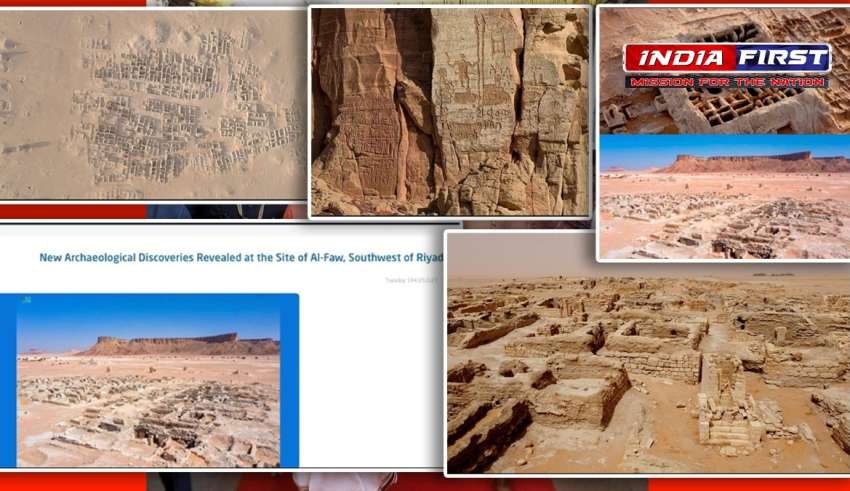
INDIA FIRST | HISTORY FIRST | FACTS |
Archaeological Breakthrough in Saudi Arabia
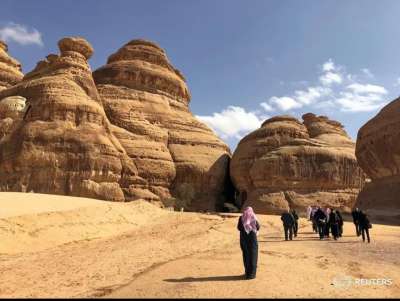
In 2022, archaeologists in Saudi Arabia announced the discovery of an 8,000-year-old stone temple at Al-Faw, southwest of Riyadh, near Mount Tuwaiq.
This site, dating to the Neolithic era, includes a rock-cut temple, altars, and over 2,800 graves, revealing a highly developed ancient settlement with sophisticated architecture, irrigation, and burial practices.
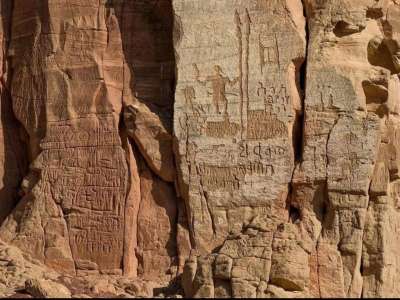
Polytheism and Local Deities
The temple and associated inscriptions point to a polytheistic culture.
The most significant deity identified at Al-Faw is Kahal, invoked in inscriptions found at the Jabal Lahaq sanctuary. Rituals, ceremonies, and idol worship were central to the spiritual life of the region’s inhabitants, reflecting a deeply rooted tradition of polytheism long before the rise of Islam.
Pre-Islamic Gods of Arabia
Before Islam, the Arabian Peninsula was home to a rich pantheon of gods and goddesses, including:
• Hubal: Chief god of the Kaaba in Mecca.

• Al-Lat, Al-Uzza, and Manat: Revered as powerful mother goddesses.
• Kahal: Newly identified as a central god at Al-Faw, as per recent excavations
These deities were worshipped through idols, temples, and open-air sanctuaries, and their veneration was integral to the region’s social and religious fabric.
Insights from the Al-Faw Excavation
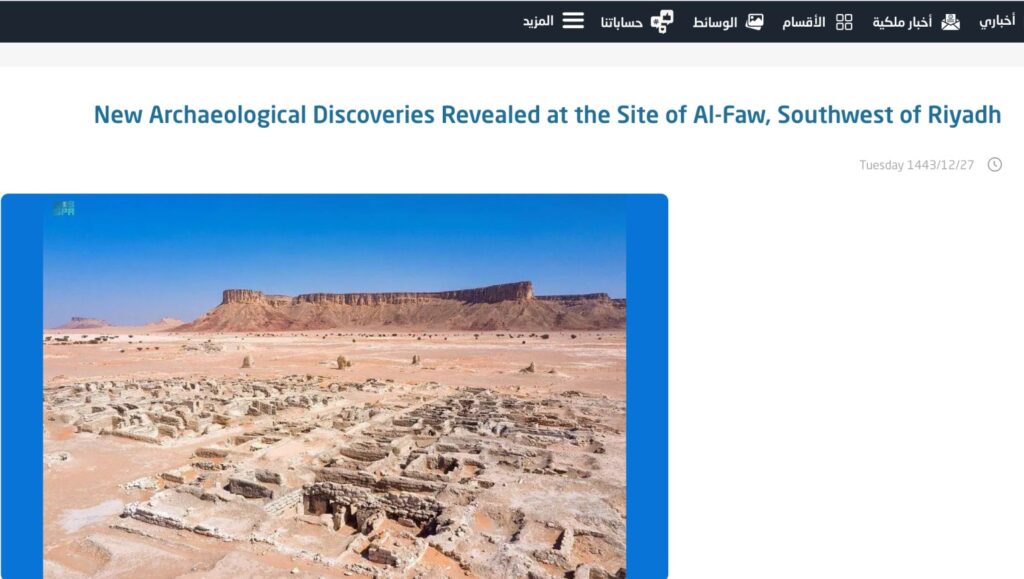
Architecture:
The temple, carved from rock, is a testament to the builders’ skill and the community’s religious fervor.

Burial Practices:
2,807 graves, categorized into six groups, shed light on ancient funerary customs and societal organization.
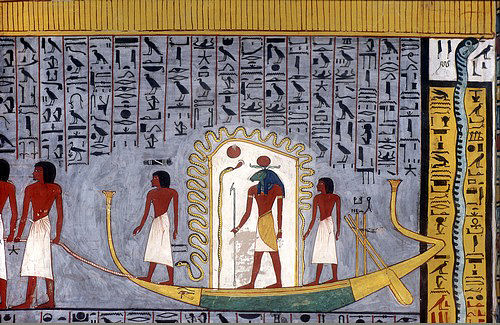
Inscriptions:
The invocation of Kahal and other devotional texts reveal the spiritual beliefs of the time.
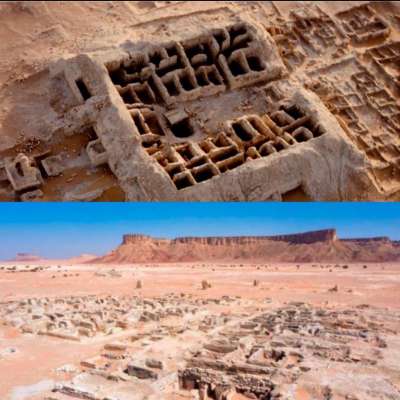
Urban Planning:
Remnants of monumental buildings, corner towers, courtyards, and an advanced irrigation system indicate a complex, well-organized society.

Sanatan Dharma Connection: Fact-Check
Some social media and news reports have claimed that the Al-Faw temple is evidence of an “8,000-year-old Sanatan Dharma (Hindu) civilization” in Arabia.
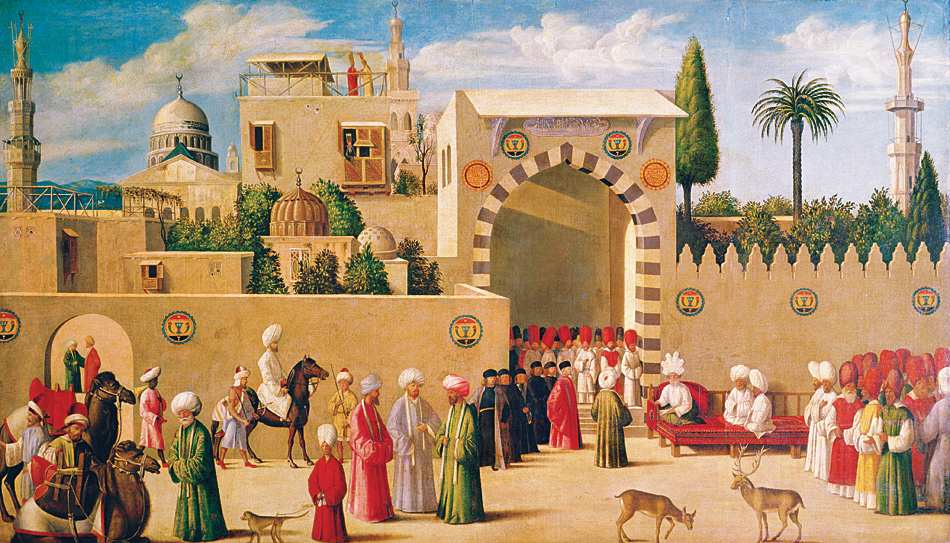
Significance and Impact :
This discovery challenges the common perception that Arabia’s religious history began with Islam. It highlights the region’s ancient, diverse spiritual heritage, marked by temples, idol worship, and complex rituals.
The Al-Faw site is now recognized as a World Heritage Site by UNESCO, underlining its global archaeological importance.
The site reveals that polytheistic temple culture, idol worship, and rituals existed in Arabia thousands of years before Islam.
The discovery challenges the idea that Arabia was always monotheistic
indiafirst.online
